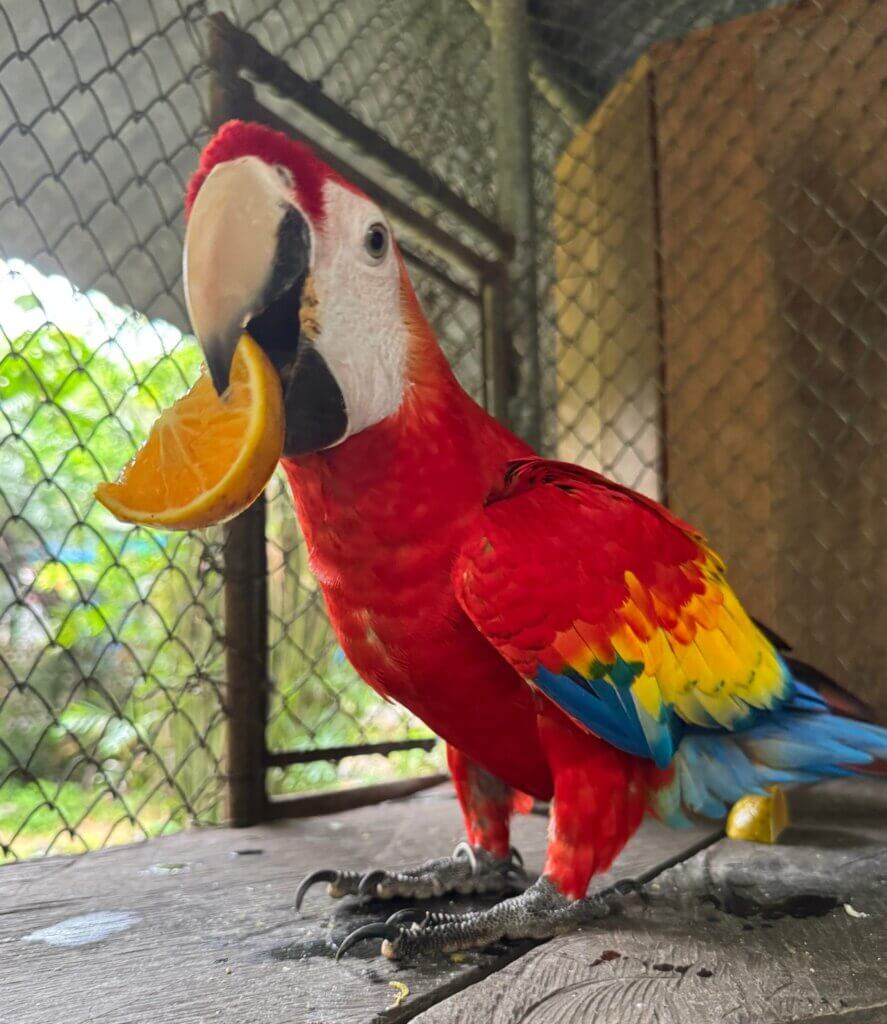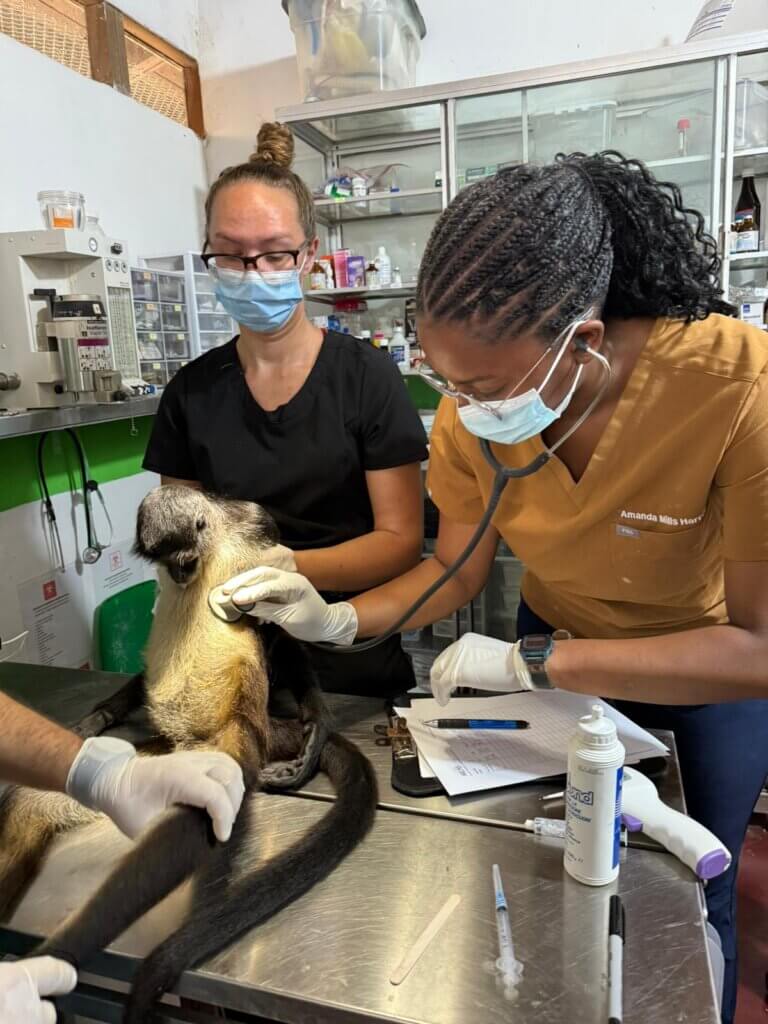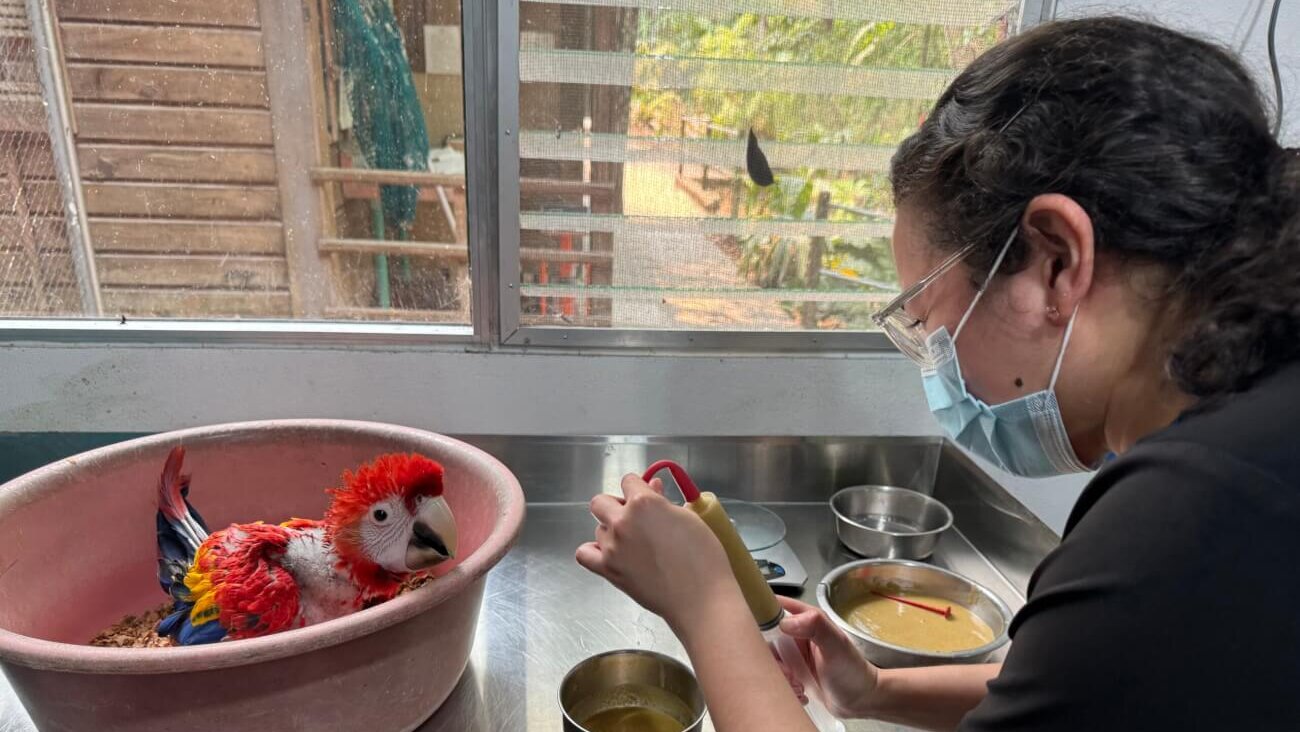Hidden amid the dense forests near the shores of Lake Petén Itzá, the ARCAS Wildlife Rescue Center is one of Central America’s most active sanctuaries for endangered and trafficked wildlife. Here, the hum of the rainforest mixes with the calls of parrots, howler monkeys, and veterinarians working side by side to give injured and orphaned animals a second chance at freedom.
In addition to their conservation efforts, ARCAS (Asociación de Rescate y Conservación de Vida Silvestre) offers unparalleled hands-on experience for veterinary and biology students from around the world. The Purdue University College of Veterinary Medicine has proudly collaborated with ARCAS for many years, sending groups of students every summer to experience wildlife rescue and rehabilitation firsthand. International Education Week this week (November 16-22) provided the perfect opportunity to showcase this invaluable educational partnership between PVM and this wildlife rescue resource in Guatemala.

ARCAS emerged in the late 1980s, following Guatemala’s recognition of the need to protect both its natural and cultural heritage. National parks were created, a species protection list was compiled, laws were passed, and the illegal trafficking of wildlife was declared a crime. However, the confiscated animals were now homeless, and a need for compassion and rehabilitation led to the establishment of ARCAS as the first wildlife rescue and rehabilitation center in Guatemala.
It’s been over three decades since those events, and animals are still being trafficked and rescued, but now they have a place to go where an interdisciplinary team fights for their right to be free. Each one has a story of survival, and each becomes part of a broader mission to protect one of the most biodiverse regions in the Americas.
Some of the most trafficked animals are monkeys and parrots, which need specialized care and attention as they develop. Monkeys will need to form a troop, which may take several years, and will experience many ups and downs along the way. Even after release, the harsh realities of nature come into play. For scarlet macaws, ARCAS operates the only captive breeding and repopulation program in northern Guatemala. With only an estimated 300 individuals left in the wild, recovering this species is a race against time. It took 11 years to release the first group, but today, more than 40 macaws have soared back into the forest, adding both color to the sky and hope to the ecosystem.
At the gateway to the Maya Biosphere Reserve, ARCAS proves that conservation involves both science and compassion. Every release and every rescued animal shows what dedicated people can accomplish. For the wildlife of Guatemala’s forests, it offers something even more meaningful: a true second chance.

As part of International Education Week, Purdue Veterinary Medicine was proud to highlight ARCAS and its conservation efforts by hosting an event Tuesday evening, November 18, that featured a screening of the BBC wildlife documentary Jungle Animal Hospital. Also this week, Purdue’s Office of Global Partnerships and Global Academic Committee recognized four winners of Purdue’s 2025 Outstanding Leadership in Globalization Award, including PVM’s own Global Engagement Director Addison Sheldon.
To learn more about ARCAS, visit www.arcasguatemala.org and follow them on Instagram (ARCAS Guatemala).
International Education Week was initially launched through a joint initiative of the U.S. Department of State and the U.S. Department of Education and is celebrated annually during the third week of November. This year, the Purdue community celebrated the benefits of international education and exchange worldwide through global innovation, collaborative research, and education by participating in a variety of activities and events organized by departments and student organizations across Purdue.

